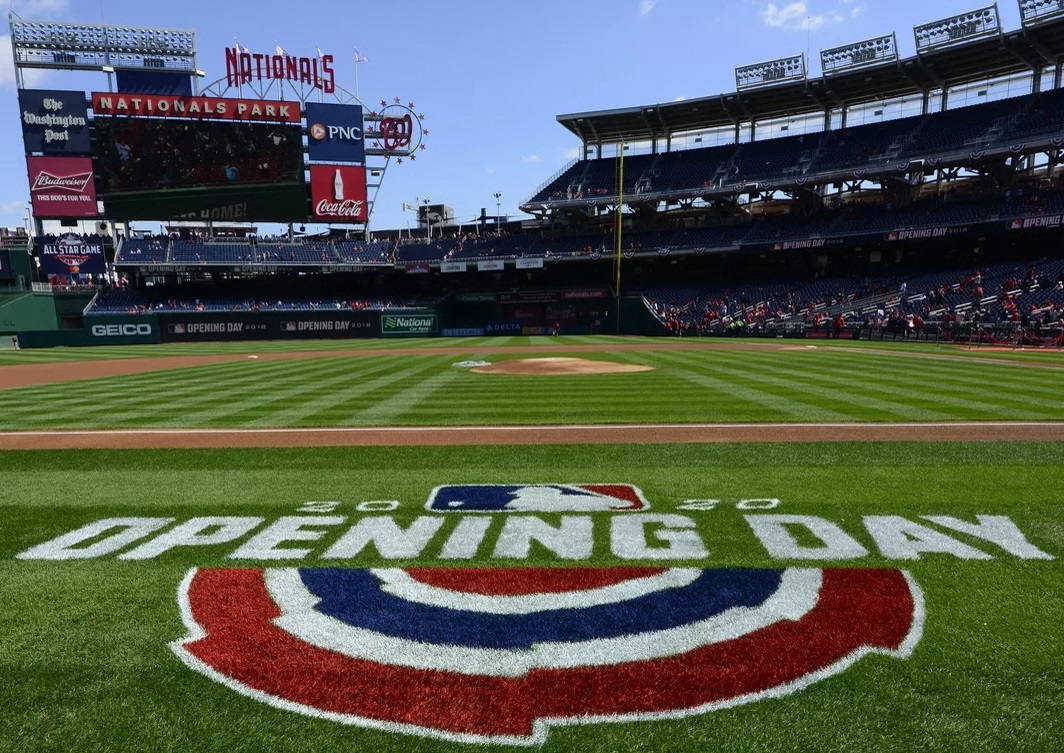Major League Baseball just kicked off the 2020 season and by any measure it will be highly watchable, utterly unique, and simply one of the most extraordinary years in the game’s history.
 And right now we get to experience it live! In our living rooms and cars, via our computers, phones, and earbuds. (The 2020 version of live.)
And right now we get to experience it live! In our living rooms and cars, via our computers, phones, and earbuds. (The 2020 version of live.)
If you’re a baseball fan, forget the quibbling and the nattering nabobs of negativism, wringing their hands over exactly how we got here: just jump in and don’t miss a moment of this remarkable unfolding history.
We got here, by the way, because on June 24, 2020 Baseball Commissioner Rob Manfred announced there would be an official start date for the 2020 Major League Baseball season.
And MLB laid out the myriad of changes, new rules, and health protocols that will be required to play America’s game in the middle of America’s COVID-19 pandemic.
 This came after months of economic posturing, transparent ill-will, and mindless haggling between MLB owners and the Major League Baseball Players Association (MLBPA).
This came after months of economic posturing, transparent ill-will, and mindless haggling between MLB owners and the Major League Baseball Players Association (MLBPA).
What baseball needed was for the two powerhouse labor adversaries to step up and be heroes; instead they played small ball into extra innings and, in the end, management simply imposed a solution.
Despite how we got here, what’s clear is this: in the history of Major League Baseball the upcoming 2020 season will stand out as a profound moment of change in a professional sport that abhors change. The game will be played inside new parameters and the traditional 162-game marathon is distilled to a 60-game long-jump to the playoffs.
And the playoffs? After various proposals to increase the number of teams qualifying for a playoff spot, MLB then went back to the original three Division leaders and two Wild Card teams format. Then it all changed again.
Now sixteen out of 30 teams will qualify to play in October. The one-game sudden death Wild Card contests are gone, replaced by a slew of three-game series to determine which teams move up.

Yes, it takes two metaphors to describe the platinum-plated value of the playoffs to the Baseball Commissioner and his employers, baseball’s team owners. In this case, expanding the playoffs from ten teams to sixteen netted MLB an additional $350 million in television broadcast revenues (and an additional $50 million for the players).
How fast will MLB version 2020 fly? The numbers in a 60-game season are cutthroat and leave little room for teams to “work their way back” if they stumble early. Since 60 games is 37% of a normal 162-game season, that means each 2020 game is worth 2.7 games of the familiar regular season. More to the point, a simple three-game series from yesteryear is now worth a bone-crushing 8.1 games.
Wiggle room just went out the back door, even with 53% of all teams making the playoffs. Because dropping two out of three in any series is death—it’s like losing five in a row.
The new bullpen pitcher rule which demands each reliever face at least three batters has been smartly modified to allow the end of an inning to end the relief pitcher’s responsibilities, no matter how many batters were faced. Which give managers a lot more room to maneuver.

Which brings up the exciting possibility of some very busy 18 inning contests or the heroic home team that can survive three or four extra innings and still win.
Two things particularly excite me this season: will any of the young, super-developing teams like the San Diego Padres, Chicago White Sox, or Toronto Blue Jays blossom in a short season with expanded playoffs?
And will we see a Cy Young Award go to a starter with a 3-6 record, a 1.22 ERA and 110 strikeouts?
Extra bonus material!
Brought to you by Daniel Shoptaw of The Cards Conclave.
Add The Sports Daily to your Google News Feed!







